


Fundamentals
Experiencing a shift in your body’s equilibrium can feel disorienting, a subtle yet persistent whisper that something is amiss. Perhaps you notice a persistent lack of energy, a change in your body composition, or a quiet erosion of your usual vitality. These sensations, often dismissed as simply “getting older” or “stress,” frequently point to a deeper, more intricate story unfolding within your endocrine system.
Hormones, these powerful chemical messengers, orchestrate nearly every biological process, from metabolism and mood to sleep and cellular repair. When their delicate balance is disrupted, the ripple effects can touch every aspect of your well-being, leaving you feeling disconnected from your optimal self.
Many individuals, seeking to reclaim their inherent physiological function, explore avenues of hormonal support. This pursuit often leads to considering therapeutic agents that can recalibrate the body’s internal messaging service. However, the path to accessing these specialized compounds is rarely straightforward, particularly when crossing international borders. The global landscape of pharmaceutical regulation presents a complex web of requirements, designed to ensure safety and efficacy, yet often posing significant hurdles for the individual seeking personalized wellness protocols.
Consider the specific situation of obtaining hormonal support in a nation like China. The rules governing the entry of pharmaceutical products are not arbitrary; they are deeply rooted in a comprehensive legal framework aimed at safeguarding public health and maintaining stringent quality control. For someone contemplating the import of compounds such as testosterone preparations or specific peptides, understanding these regulations becomes an extension of their personal health journey. It transforms from a simple transaction into a procedural challenge, requiring careful navigation of official decrees and administrative measures.
Reclaiming vitality often involves understanding how global pharmaceutical regulations intersect with personal hormonal health needs.
The initial step in comprehending China’s pharmaceutical import landscape involves distinguishing between personal use and commercial distribution. For an individual seeking to bring a small quantity of hormonal support for their own medical needs, the requirements differ substantially from those faced by a company aiming to market and distribute these substances across the country. This distinction is paramount, as the regulatory pathways diverge significantly, impacting everything from required documentation to the sheer volume of product permissible for entry.
Navigating these distinctions requires a clear understanding of the governing bodies. The National Medical Products Administration, known as the NMPA, stands as the central authority for pharmaceutical regulation within China. This agency, alongside the General Administration of Customs, establishes and enforces the guidelines that dictate what pharmaceutical products can enter the country and under what conditions. Their directives shape the accessibility of various hormonal preparations, including those used in advanced endocrine system support.


Why Are Pharmaceutical Import Rules so Strict?
The rigorous nature of pharmaceutical import regulations, particularly for substances like hormones, stems from several core principles. Governments worldwide prioritize patient safety, aiming to prevent the entry of counterfeit, substandard, or unapproved medications. Ensuring the quality and authenticity of therapeutic agents is a universal concern, especially for compounds that exert powerful physiological effects. Hormonal preparations, by their very nature, require precise dosing and purity to achieve desired outcomes and avoid adverse reactions.
Another driving force behind strict controls involves public health policy. Nations seek to manage the availability of potent medications, often to prevent misuse, abuse, or unauthorized distribution. Hormones and peptides, while offering immense therapeutic potential, also carry risks if not administered under appropriate medical supervision. Regulatory bodies implement controls to ensure these substances are used responsibly within a clinical context, aligning with national healthcare strategies.
Economic considerations also play a role. Domestic pharmaceutical industries are often protected, and import regulations can influence market dynamics, encouraging local production or research and development. While this might seem distant from an individual’s health concerns, it forms part of the broader regulatory environment that shapes the availability and cost of hormonal support options within a country. Understanding these underlying motivations helps to contextualize the seemingly complex bureaucratic processes.
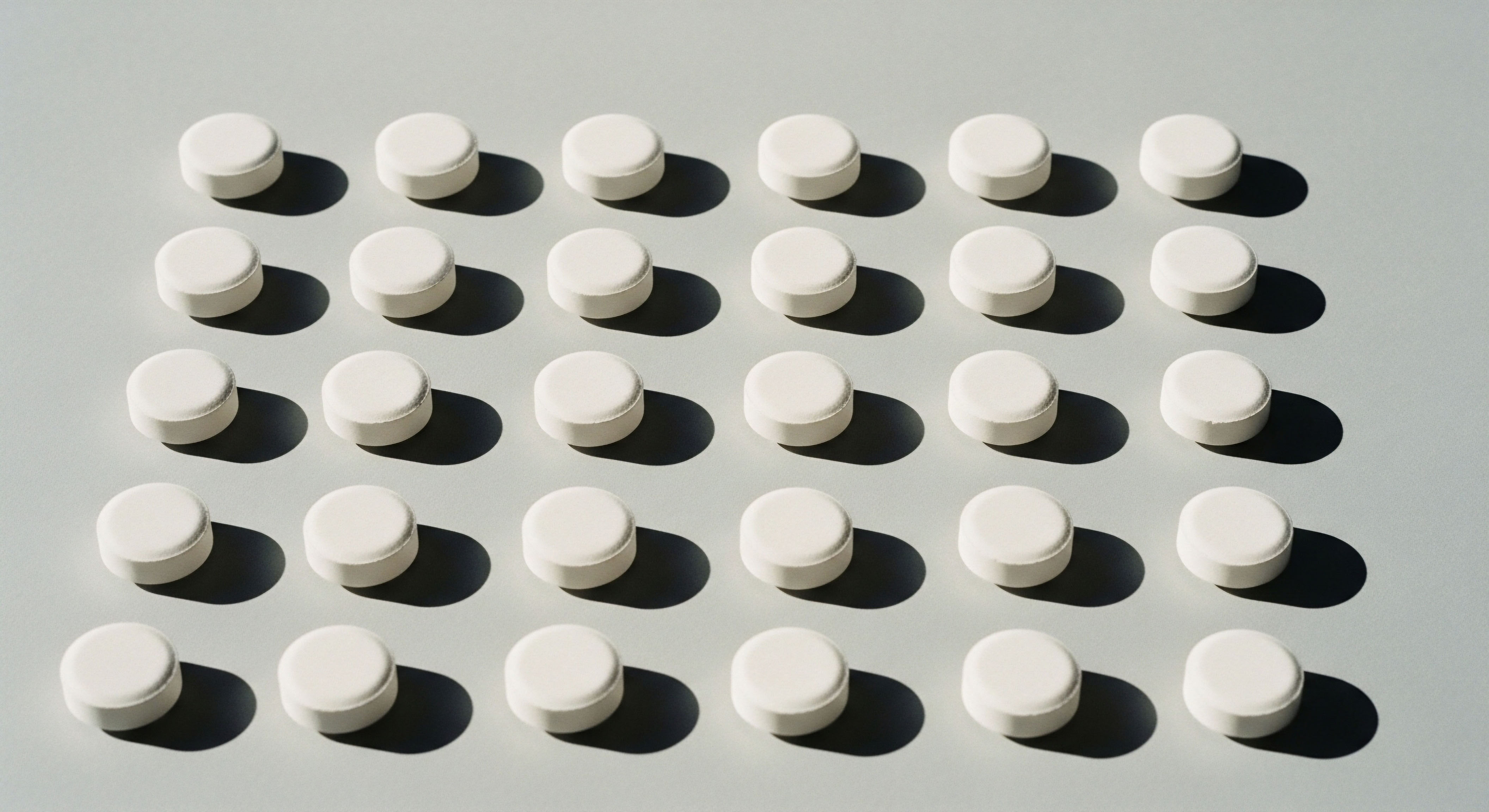

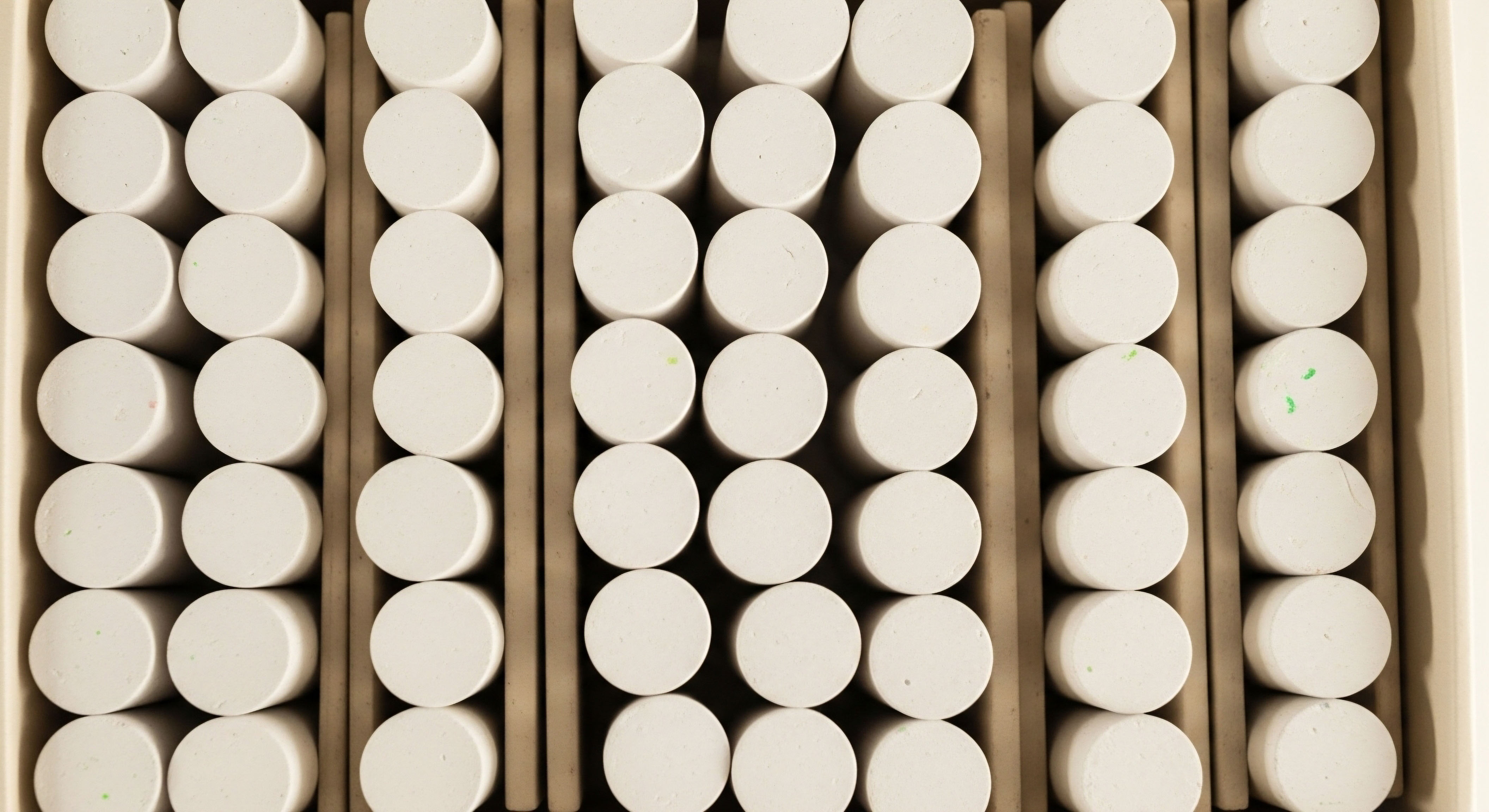
Intermediate
Moving beyond the foundational understanding, a closer examination of China’s pharmaceutical import rules reveals specific pathways and requirements for hormonal support. The distinction between personal carriage and commercial import remains paramount, each governed by distinct administrative measures and oversight bodies. For individuals, the process centers on demonstrating legitimate medical need and adhering to quantity limitations. For commercial entities, the journey involves a comprehensive registration and approval process overseen by the National Medical Products Administration.
When an individual travels into China with hormonal support medications, such as testosterone cypionate for male hormonal optimization or specific peptides like Sermorelin for growth hormone peptide therapy, they must carry a valid medical prescription. This document, issued by a medical institution, serves as verification of the legitimate need for the substance. Customs officials will inspect these items, ensuring the quantity aligns with a “reasonable amount for personal use,” which is often interpreted as a supply for approximately seven days.
Personal import of hormonal support requires a medical prescription and adherence to strict quantity limits.
The category of “protein assimilation preparations and peptide hormones” is specifically mentioned in Chinese regulations as requiring a prescription for customs clearance when carried by individuals. This classification directly impacts many of the advanced wellness protocols, including various forms of testosterone replacement therapy and peptide therapies. Patients undergoing biochemical recalibration with these compounds must be acutely aware of these requirements to avoid complications upon entry.
For commercial importation, the regulatory landscape transforms into a multi-stage process demanding significant investment and adherence to rigorous standards. Any pharmaceutical product intended for sale or widespread distribution in China requires an Import Drug License issued by the NMPA. This license is the gateway to the Chinese market, signifying that the product has met the country’s stringent safety, efficacy, and quality benchmarks.


Understanding Drug Classification and Approval
The NMPA categorizes drugs into various types, including small molecule drugs, traditional Chinese medicines, and therapeutic biologics. Hormonal preparations, especially those derived from recombinant technology or synthetic peptides, typically fall under the biologics category or specific chemical drug classifications. Each classification dictates a unique registration pathway and specific data requirements.
The approval procedure for new or imported drugs is comprehensive, involving several critical phases ∞
- Preclinical Studies ∞ Before human trials, extensive laboratory and animal studies are conducted to assess the drug’s pharmacological and toxicological properties. These studies must adhere to Good Laboratory Practice (GLP) guidelines.
- Clinical Trials ∞ New drugs generally require clinical trials conducted within China, following Good Clinical Practice (GCP) standards. These trials are typically divided into three phases:
- Phase I ∞ Small groups of healthy volunteers assess safety and dosage.
- Phase II ∞ Larger patient groups evaluate efficacy and side effects.
- Phase III ∞ Extensive patient populations confirm efficacy and safety.
While historically domestic trials were mandatory, China’s alignment with International Council for Harmonisation (ICH) guidelines now allows for the acceptance of foreign clinical data under certain conditions, potentially reducing duplication of studies.
- Manufacturing Inspection ∞ Production facilities, whether domestic or international, must undergo inspection and approval by the NMPA to ensure compliance with Good Manufacturing Practices (GMP). This includes assessments of raw material quality, manufacturing processes, and quality control measures. Specific hormonal products, such as sex hormonal contraceptives, require dedicated facilities to prevent cross-contamination.
- Dossier Submission and Review ∞ A complete application dossier, containing all preclinical, clinical, and manufacturing data, is submitted to the NMPA. The agency conducts a technical review, onsite inspections, and an expert review to evaluate the drug’s safety, efficacy, and quality.
For specific hormonal optimization protocols, such as Testosterone Replacement Therapy (TRT) for men using weekly intramuscular injections of Testosterone Cypionate, or for women using subcutaneous injections, the active pharmaceutical ingredient (testosterone cypionate) would be subject to these rigorous import and registration requirements. Similarly, peptides like Gonadorelin, Anastrozole, Tamoxifen, Clomid, Sermorelin, Ipamorelin, CJC-1295, Tesamorelin, Hexarelin, MK-677, PT-141, and Pentadeca Arginate would fall under these classifications, requiring comprehensive data to demonstrate their quality and therapeutic value.


How Do Expedited Pathways Affect Access?
Recognizing the need for faster access to critical medications, the NMPA has implemented expedited approval pathways. These include priority review for drugs addressing unmet medical needs, breakthrough therapy designation for those showing significant improvement over existing treatments, and conditional approval based on preliminary data, with post-marketing studies required. While these pathways primarily benefit innovative drugs for serious conditions, they represent a broader trend towards streamlining the regulatory process, potentially impacting future access to certain advanced hormonal therapies if they meet the criteria for urgent clinical need.
The complexity of these regulations underscores the importance of professional guidance for commercial entities. Navigating the NMPA’s requirements, preparing comprehensive dossiers, and ensuring GMP compliance demands specialized expertise. For individuals, understanding the personal import rules, particularly regarding prescriptions and quantity limits, remains the primary concern to ensure a smooth entry into China with their necessary hormonal support.
Academic
A deep examination of China’s pharmaceutical import regulations for hormonal support reveals a sophisticated, evolving framework rooted in the nation’s commitment to public health and drug quality. The overarching legal instrument governing this domain is the Drug Administration Law of the People’s Republic of China , a foundational statute that has undergone significant revisions, most notably in 2019, to align with international standards and streamline market access for innovative medicines. This legislative bedrock is supplemented by numerous administrative provisions and decrees issued by the National Medical Products Administration (NMPA) and the General Administration of Customs.
The distinction between personal carriage and commercial importation, while seemingly straightforward, is underpinned by specific legal interpretations. For personal use, the concept of “reasonable amount” is critical. While often informally cited as a seven-day supply, official guidance emphasizes that this quantity must be genuinely for self-use and supported by a medical prescription.
This provision is particularly relevant for individuals managing conditions requiring ongoing hormonal optimization, such as those on Testosterone Replacement Therapy (TRT) or specific peptide protocols. The legal basis for this personal import allowance is found in the “Provisions on Managing the Import and Export of Protein Assimilation Preparation and Peptide Hormone (For Trial Implementation),” which specifically addresses these classes of compounds.
China’s pharmaceutical import framework for hormones balances public health with market access, guided by the Drug Administration Law.
Commercial importation, conversely, is a highly regulated process requiring a Drug Import License issued by the NMPA. This license is not merely a permit; it represents the culmination of a rigorous evaluation process designed to ensure the imported product’s safety, efficacy, and quality. The NMPA’s role extends across the entire lifecycle of a drug, from preclinical development to post-market surveillance.

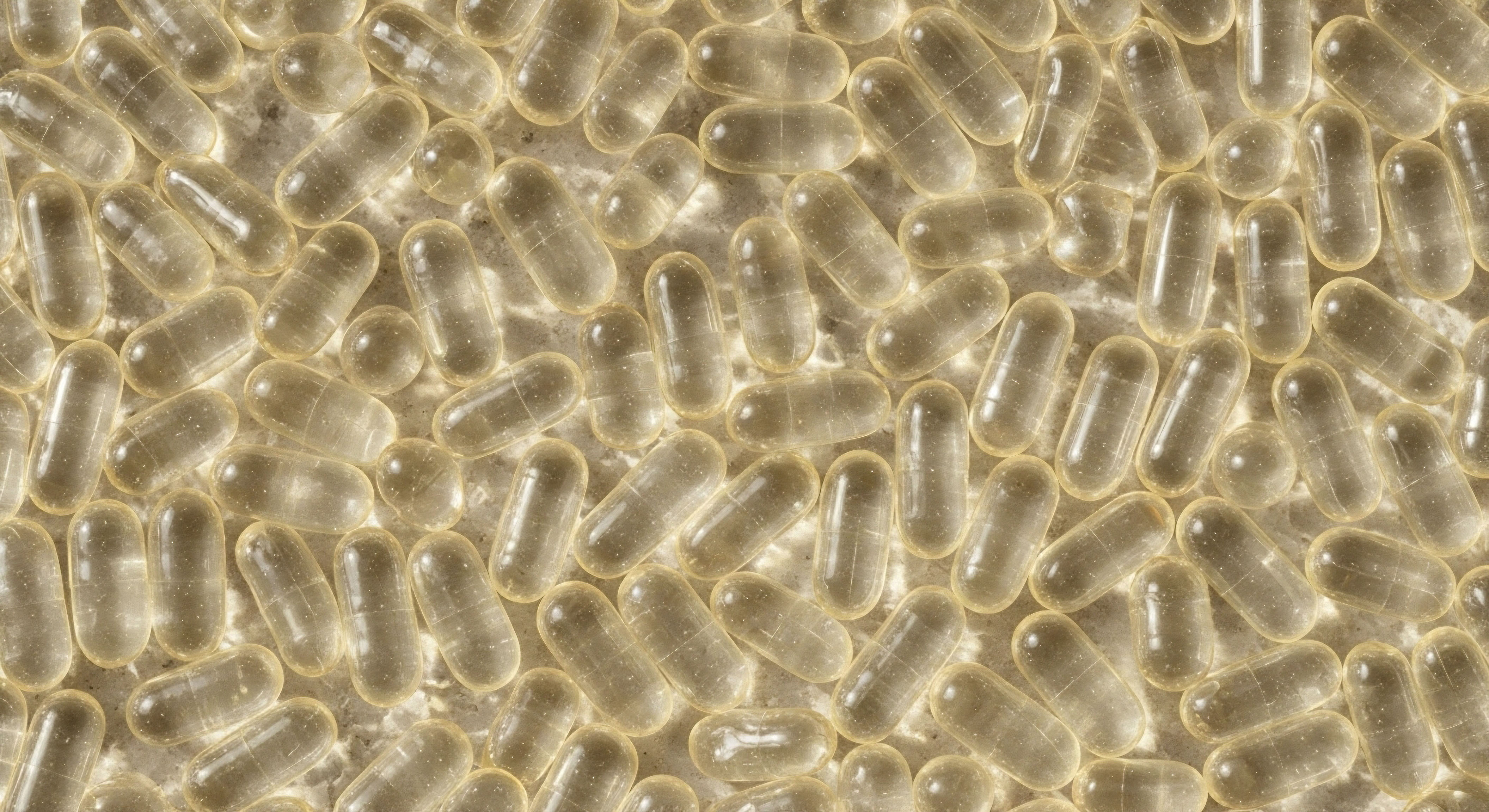
Regulatory Pathways for Hormonal Preparations
Hormonal preparations, including those used in male and female hormonal optimization and peptide therapies, are typically classified as chemical drugs or biological products. The specific classification dictates the precise regulatory pathway. For instance, synthetic testosterone, a small molecule, would follow the chemical drug pathway, while peptides like Sermorelin or Ipamorelin, being larger molecules, would be categorized as biological products.
The NMPA’s drug approval procedures, refined in 2025, reflect a move towards greater harmonization with international guidelines, particularly those of the International Council for Harmonisation (ICH). This alignment has significant implications for foreign pharmaceutical manufacturers.


Clinical Data Requirements and ICH Alignment
Historically, new drugs required local clinical trials within China. However, with ICH membership, the NMPA now accepts overseas clinical trial data, provided it meets specific conditions and adheres to Good Clinical Practice (GCP) standards. This policy shift reduces the need for redundant studies, accelerating market entry for innovative medicines. For complex hormonal therapies, this means that robust clinical evidence generated internationally can contribute to the registration dossier, although multi-regional trials (MRTs) involving Chinese patients are often preferred to demonstrate relevance to the local population.
The comprehensive dossier submitted for registration must include detailed information on the drug’s composition, manufacturing processes, and the results of preclinical and clinical studies. This data forms the basis for the NMPA’s technical review, which assesses the completeness and compliance of the application with regulatory standards.


Good Manufacturing Practices and Quality Control
Compliance with Good Manufacturing Practices (GMP) is a non-negotiable requirement for all pharmaceutical products, whether domestically produced or imported. The NMPA conducts stringent inspections of manufacturing facilities to verify adherence to these standards. For hormonal preparations, particularly sex hormones and highly potent chemical products, specific GMP requirements apply, often mandating dedicated facilities and equipment to prevent cross-contamination and ensure product integrity. This level of control underscores the NMPA’s focus on quality assurance throughout the supply chain.
The NMPA’s 2025 edition of the Chinese Pharmacopoeia further defines the legal standards for drug character, purity, and strength, including specific pharmacological standards for hormone preparations. Marketing authorization holders and manufacturers are expected to comply with these updated standards, continuously improving quality control measures.
The table below outlines key regulatory bodies and their primary responsibilities concerning pharmaceutical imports in China ∞
| Regulatory Body | Primary Responsibilities for Pharmaceutical Imports |
|---|---|
| National Medical Products Administration (NMPA) | Drug registration and approval, issuance of Import Drug Licenses, oversight of clinical trials, GMP compliance inspections, post-market surveillance, drug classification. |
| General Administration of Customs (GAC) | Customs clearance, inspection of imported goods, enforcement of import prohibitions and restrictions, verification of personal use quantities and prescriptions. |
| National Health Commission (NHC) | Formulation of national health policies, inclusion of drugs in essential medicine lists, and collaboration with NMPA on urgent drug import plans. |
For companies seeking to introduce advanced hormonal support protocols, such as those involving Gonadorelin, Anastrozole, or specific growth hormone peptides, the path involves navigating this intricate regulatory ecosystem. The process demands meticulous preparation of application dossiers, adherence to clinical trial guidelines, and demonstrable GMP compliance. The NMPA’s expedited pathways, while primarily for innovative drugs addressing unmet needs, signify a broader regulatory intent to facilitate access to beneficial therapies, potentially offering a faster route for certain hormonal compounds if they meet the stringent criteria.
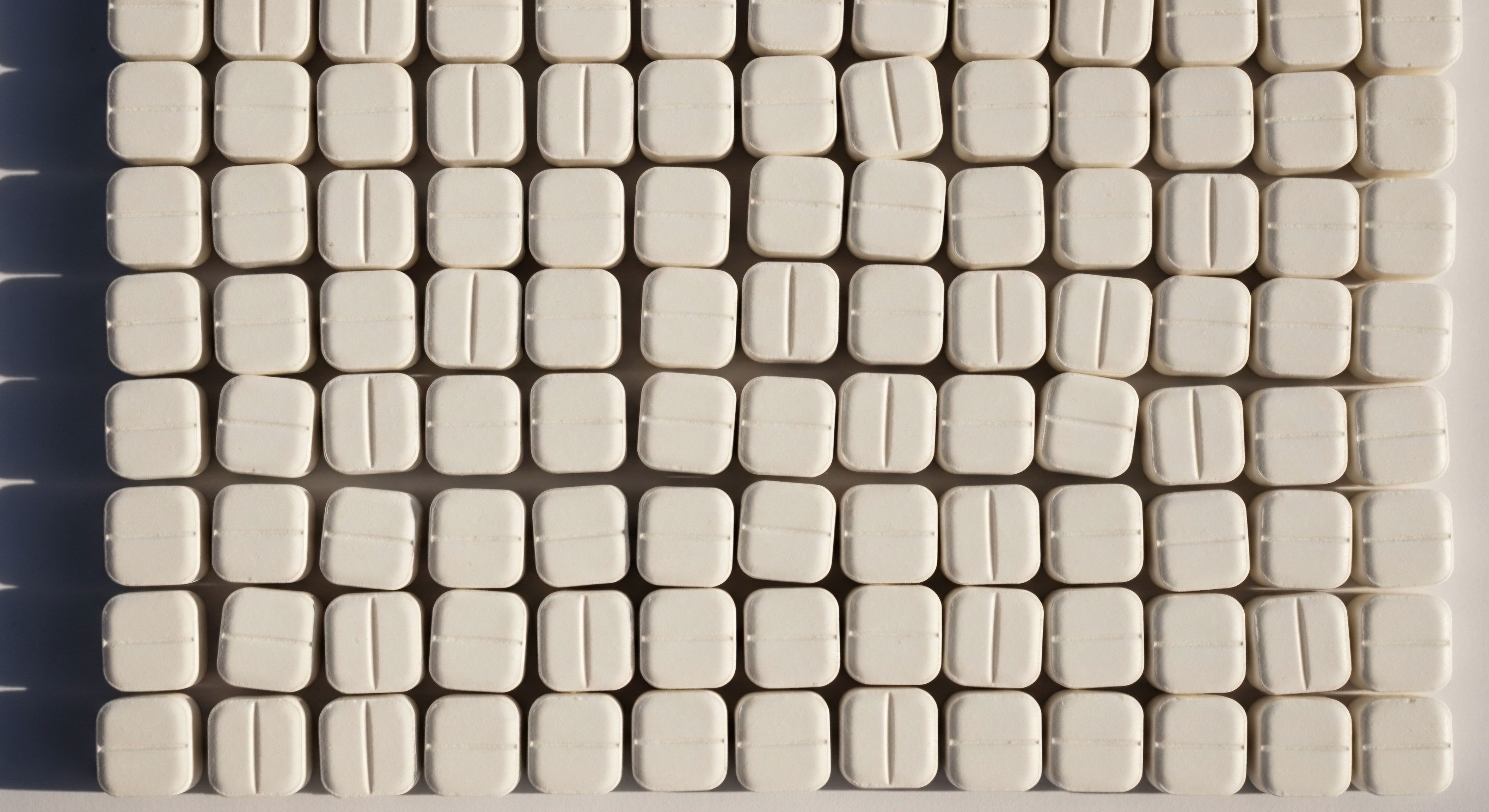
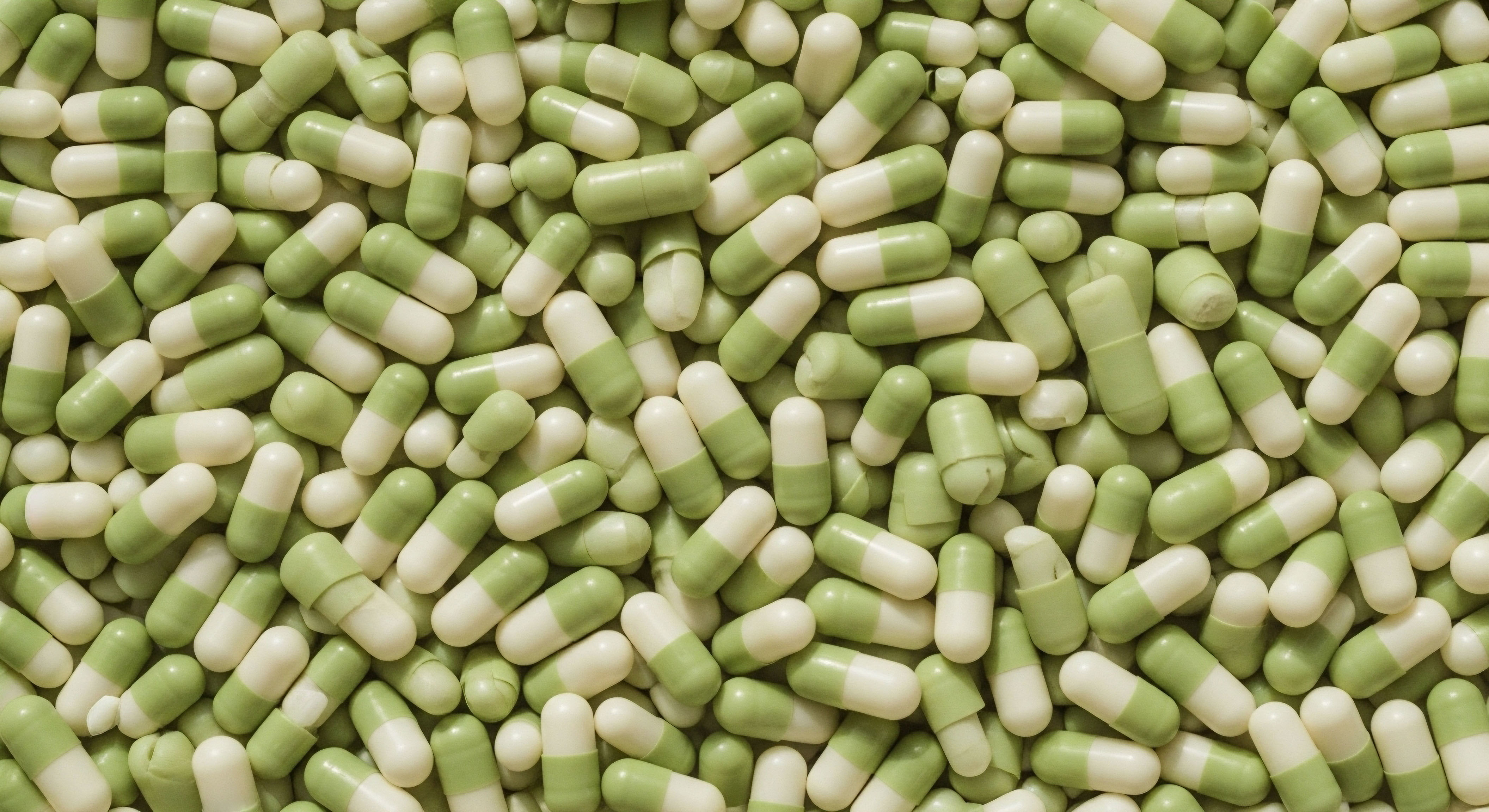
What Are the Implications for Personalized Wellness Protocols?
The stringent import rules in China present both challenges and opportunities for personalized wellness protocols centered on hormonal balance. For individuals, the requirement for a valid prescription and limited quantities means that long-term, self-managed import of hormonal support is not a viable or legally compliant strategy. Instead, individuals residing in China would need to seek local medical consultation and obtain prescriptions from licensed Chinese medical institutions, or explore locally approved and available therapeutic options.
For international providers of hormonal optimization protocols, commercial entry into the Chinese market necessitates a full understanding of the NMPA’s registration process. This includes potentially conducting local clinical trials, ensuring manufacturing facilities meet Chinese GMP standards, and preparing comprehensive regulatory submissions. The market’s size and growth potential, however, often justify this significant investment for companies aiming to provide a broader range of hormonal support options within the country.
The regulatory environment for pharmaceutical imports in China is dynamic, reflecting the nation’s commitment to both public health and fostering innovation. For anyone involved with hormonal support, whether as a patient or a commercial entity, a precise understanding of these rules is not merely a bureaucratic exercise; it is a fundamental aspect of ensuring safe, effective, and compliant access to essential therapeutic agents.
| Import Type | Key Requirements | Relevant Hormonal Support Examples |
|---|---|---|
| Personal Use (Carriage/Post) | Medical prescription, “reasonable amount” (e.g. 7-day supply), for self-use only. Subject to customs inspection. | Testosterone Cypionate for TRT, small quantities of Sermorelin or PT-141 for personal therapeutic use. |
| Commercial Import (Distribution/Sale) | Import Drug License from NMPA, comprehensive dossier (preclinical, clinical, manufacturing data), GMP compliance, potentially local clinical trials, NMPA review and approval. | Large-scale importation of Testosterone Cypionate, Gonadorelin, Anastrozole, or various peptides for distribution in clinics or pharmacies. |
References
- AsianLII. Provisions on Managing the Import and Export of Protein Assimilation Preparation and Peptide Hormone (For Trial Implementation). Decree of the State Food and Drug Supervision Administration, the General Administration of Customs and the State General Administration of Sports. No.25. 2006.
- The State Council of the People’s Republic of China. Responses regarding drug import regulations. 2024.
- REACH24H. Updates on Pharmaceutical Regulations in China. June 2022.
- C.i. Process. Pharmaceuticals & Drugs Market and Regulations in China. 2025.
- National Medical Products Administration (NMPA). Good Manufacturing Practice for Drugs (2010 Revision). 2019.
- National Medical Products Administration (NMPA). Provisions for Drug Registration. 2022.
- Global Legal Insights. Pricing & Reimbursement Laws and Regulations 2024 | China. 2024.
- Shanghai Customs. Can I bring prescribed or personal medications from my home country to Shanghai? FAQs. 2024.
- LSE. Pharmaceutical Policy in China. 2016.
- MedNexus. Pharmacological Standards for the Hormone Preparations of the Chinese Pharmacopoeia. 1930.
- China NMPA. Bridging the new drug access gap between China and the United States and its related policies. 2024.
- Pharmaceutical Engineering. Evolving China’s Regulatory System in Alignment with ICH. 2021.
- CIRS Group. China Published 2025 Edition Chinese Pharmacopoeia. 2025.
Reflection
Understanding the intricate regulatory landscape surrounding hormonal support, particularly in a context like China, represents a significant step in your personal health journey. This knowledge is not merely a collection of facts; it is a lens through which you can view your own biological systems and the external factors that influence them. Recognizing the rigorous processes involved in pharmaceutical importation can deepen your appreciation for the safety and quality standards that underpin modern medicine.
Your body’s endocrine system is a symphony of interconnected pathways, and supporting its optimal function often requires precise, evidence-based interventions. The insights gained into regulatory frameworks underscore that true wellness protocols extend beyond the purely physiological, encompassing legal and logistical considerations. This broader perspective empowers you to make informed decisions, whether seeking local care or navigating international access to specific therapeutic agents.
Consider this exploration a foundational element in your ongoing pursuit of vitality. The path to reclaiming optimal function is unique for each individual, shaped by personal biology, lifestyle, and the broader environment. Equipped with a clearer understanding of both the science of hormonal balance and the practicalities of pharmaceutical access, you are better positioned to advocate for your own well-being and partner effectively with healthcare professionals. This journey is about personal agency, transforming complex information into actionable knowledge for a more vibrant existence.

